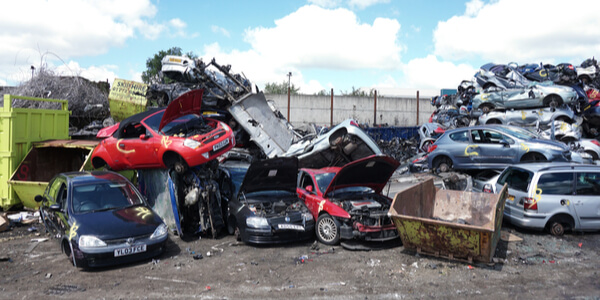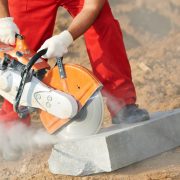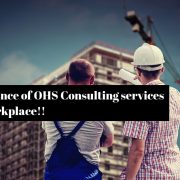Auto recycling company fined 3 Million for Forklift fatality
In May 2019, a 58-year-old man was loading tyres at an auto recycling company when a forklift reversed into the man, crushing him into a truck. Tragically the man died in hospital eight days later. Earlier this year in April 2020, the auto recycling company in Brisbane was found by the court to have had no safety systems in place, and instead told their workers verbally to “look after themselves”.
To make matters worse, the two directors of the auto recycling company tried to deflect responsibility of the accident by initially misleading investigators. The judge commented that the two directors had a high “moral culpability” and that it was incredibly distressing to see on CCTV the death of their employee crushed by the force of the forklift.
The judge found the two directors knew of the potential catastrophic risk of not having a Safety system, and chose not to have one in place even though the cost of implementing such a system is modest.
The two directors were sentenced to 10 months suspended sentence, and the company fined $3 million dollars. The consequence also goes to the distraught family of the employee, who will forever be impacted by this horrific event that could have been prevented.
“Safety is like a lock, but you are the Key”.

Employers need to take a proactive approach to safety
Work Health & Safety (WHS) Legislation section 272, places direct responsibility to the employers to acquire and keep up-to-date with WHS matters. The legislation instructs employers to “comply with their duty by taking an active and inquisitive role in WHS”. This includes taking a strategic approach to WHS Management and being proactive in identifying hazards and risk. Instead of just reporting on accidents that have happened, employers also need to foster a culture where employees record and identify near misses, which is vital in ensuring no future accident takes place.
What can I do to manage risks to mobile plant and Forklifts?
Employers need to audit their business to ensure their WHS plan complies in managing mobile plant. SafeWork NSW requires that operators of certain types of mobile plant (such as forklifts and reach trucks) must be properly trained and hold a current High Risk Work License (HRW).
The following steps are a useful guide to ensure compliance:
- Identify all hazards in regard to mobile plant
It is recommended that your workplace has a Safe Work Instruction (SWI) document for each mobile plant being used. The SWI should identify specific hazards that exist in your workplace, such as ground conditions, obstacles, overhead obstruction and traffic. The SWI should also identify hazards arising from operator behaviour such as driving the forklift too quickly near blind spots or around corners.
- Ensure effective control of risks in mobile plant
The SWI for your mobile equipment should then list the controls that will be used to eliminate or reduce the risk of the identified hazards. Examples of controls to ensure pedestrian safety around forklifts can include methods such as using physical barriers (i.e. bollards or metal fencing) or marking out pedestrian paths using line markings where forklifts are not allowed to go.
- Ensure WHS procedures are clear to staff
Even the best SWI document can fail its purpose if it is not communicated properly to employees. Employers need to make sure the SWI document is in a clear concise language, and able to be used practically by the employees. Ensure that all operators of your mobile plant are trained in the SWI, including refresher training.
- Enforce WHS procedures and make sure it is followed
Conduct a regular audit of the safety system in your workplace, including checking employees are correctly using the SWI procedures for the mobile plant.
You, as the employer have a responsibility to make sure your employees go home safely to their families at the end of the working day. Perhaps as well as asking “What do I need to do to comply with WHS legislation?”, we should all be asking “How can I best look after my employees, who are looking after my business so well?”.
For more information on High Risk Work Licenses for mobile plant consult the SafeWork NSW website. The above information is intended as a general guide only. Please contact a qualified WHS consultant for the specific needs of your workplace.











